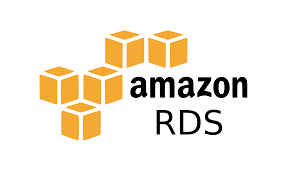Is AWS Support Failing Its Customers? An Honest Review
I don’t know if it’s just me, but AWS support has gone downhill in recent months and years. To caveat this, please note that I have access to Enterprise support, and we have a technical account manager (TAM), so we spend a lot of money on AWS. The TAM has been brilliant; whenever I have had to escalate issues, they have been picked up timely.

My problem is with everyday support, chat sessions, and the general knowledge of the front-line support teams, which is really poor at present. I can’t remember the last time I managed to get a first-time fix. A few years ago, I would be singing the praises of the front-line teams; they would nearly always be able to fix my issue the first time.
I think a lot depends on which team picks up the ticket. I have found that the teams in India are superb at fixing issues. However, recently, I seem to have been transferred to teams in South Africa, which I don’t think are as good. Maybe I got unlucky.
Have you experienced issues with AWS Support? It would be great to hear in the comments.
What could be the cause?
- Scale and Volume: AWS is a massive platform serving millions of customers worldwide. Handling support requests at such a large scale can be challenging, leading to delays or less personalized responses.
- Complexity of Services: AWS offers a vast array of services with intricate configurations. Addressing issues related to such complex systems requires highly specialized expertise, which may not always be readily available in support interactions.
- Tiered Support Levels: AWS offers different tiers of support, with higher tiers providing faster response times and access to more experienced support engineers. Users on lower tiers may find the support less responsive or comprehensive.
- Self-Service Model: AWS heavily promotes self-service through its extensive documentation, knowledge base, and community forums. While this empowers users to troubleshoot issues independently, it can also lead to frustration when users seek direct assistance and encounter barriers.
- Communication Challenges: Support interactions may suffer from communication issues due to language barriers, differing technical proficiencies between support staff and users, or misunderstandings regarding the nature of the problem.
- Resource Constraints: Like any large organization, AWS may face resource constraints in terms of staffing levels or training programs, which can impact the quality and availability of support services.
- Dependency on Partner Ecosystem: Many AWS users rely on third-party providers or consultants for support, and the quality of support can vary widely depending on the provider’s expertise and responsiveness.
What AWS Support Plans are Available?
AWS offers a tiered range of support plans to suit your needs, from basic account management to in-depth technical assistance:
- Basic Support (Free): This is the default plan for all AWS accounts and provides non-technical customer service, access to documentation and whitepapers, and forums for general inquiries.
- Developer Support (Paid): This plan builds on Basic Support with a certain number of technical support cases per month, allowing you to raise issues and get help from AWS engineers.
- Business Support (Paid): This plan offers everything in Developer Support, plus a higher number of support cases and faster response times, making it suitable for production workloads.
- Enterprise On-Ramp (Paid): This plan is designed to help you migrate to AWS with technical guidance and a limited number of support cases. It also includes one free engagement with AWS Countdown, a service for proactive risk identification and mitigation.
- Enterprise Support (Paid): This is the most comprehensive plan, offering the highest level of technical support with 24/7 access to AWS engineers, unlimited cases, and a dedicated Technical Account Manager (TAM) for strategic guidance.
In addition to these plans, AWS also offers add-on services like AWS Incident Detection and Response, which provides even faster response times and custom support for critical workloads.
To choose the right support plan for you, consider the complexity of your AWS environment, your tolerance for risk, and the level of technical expertise within your team.




Recent Comments